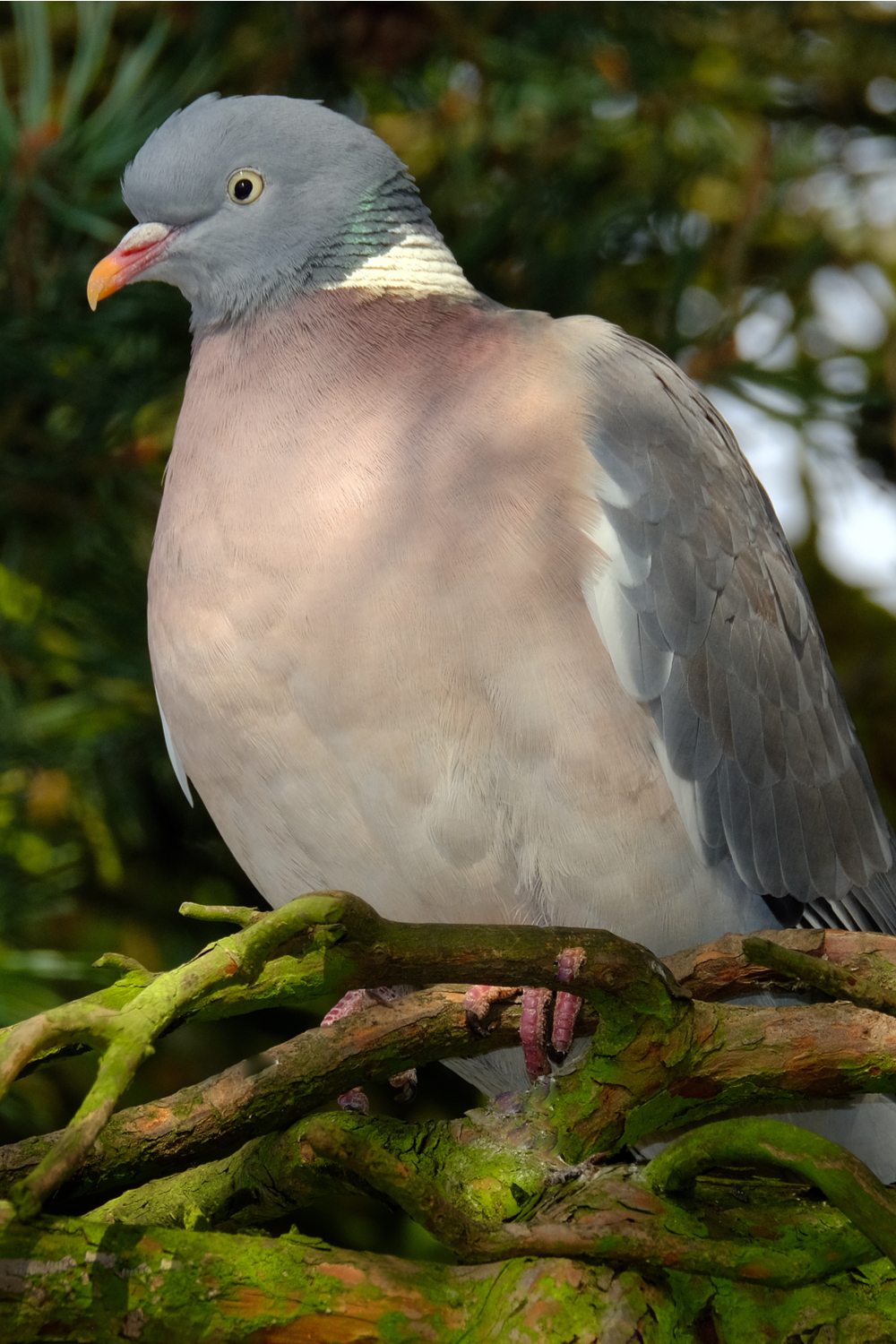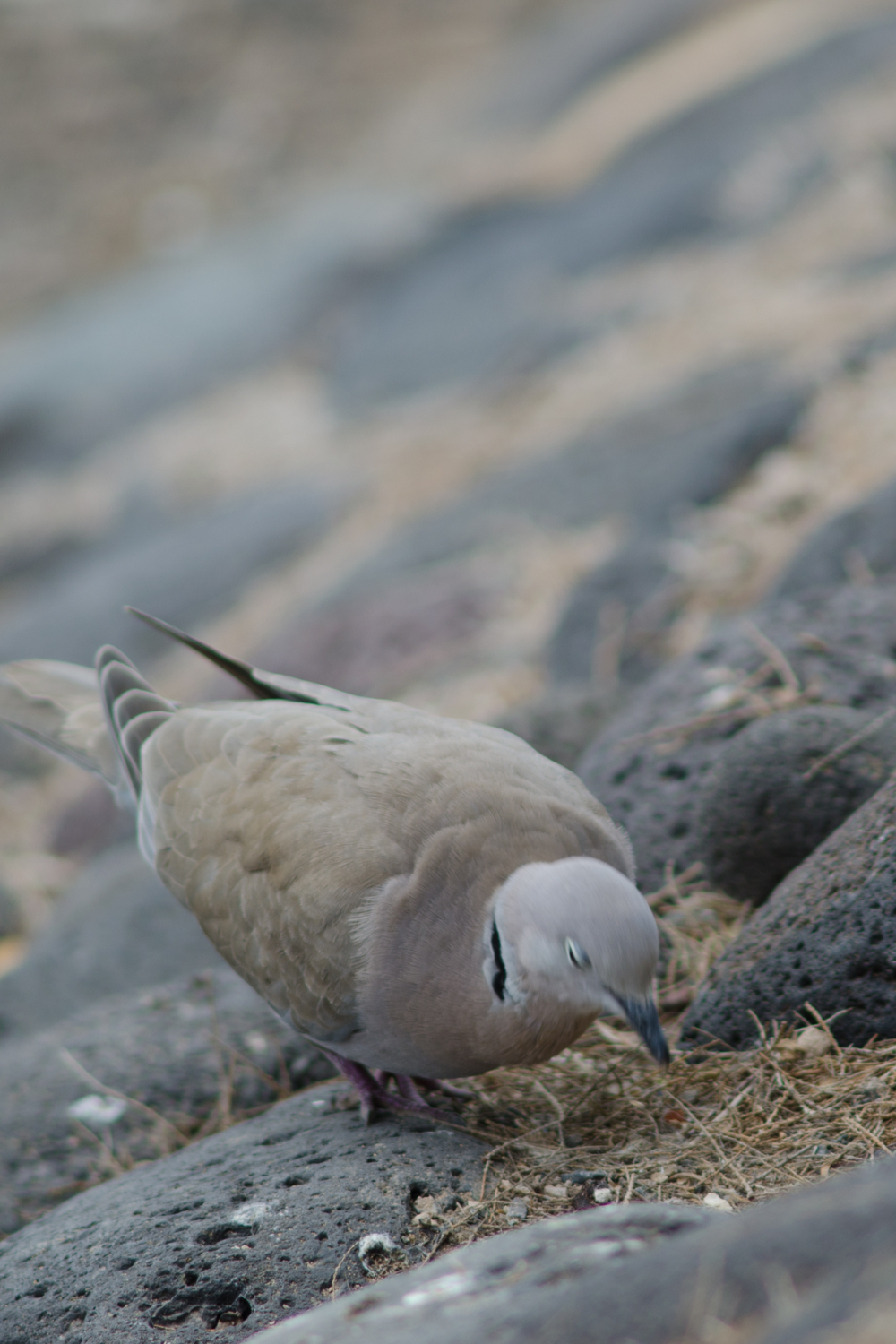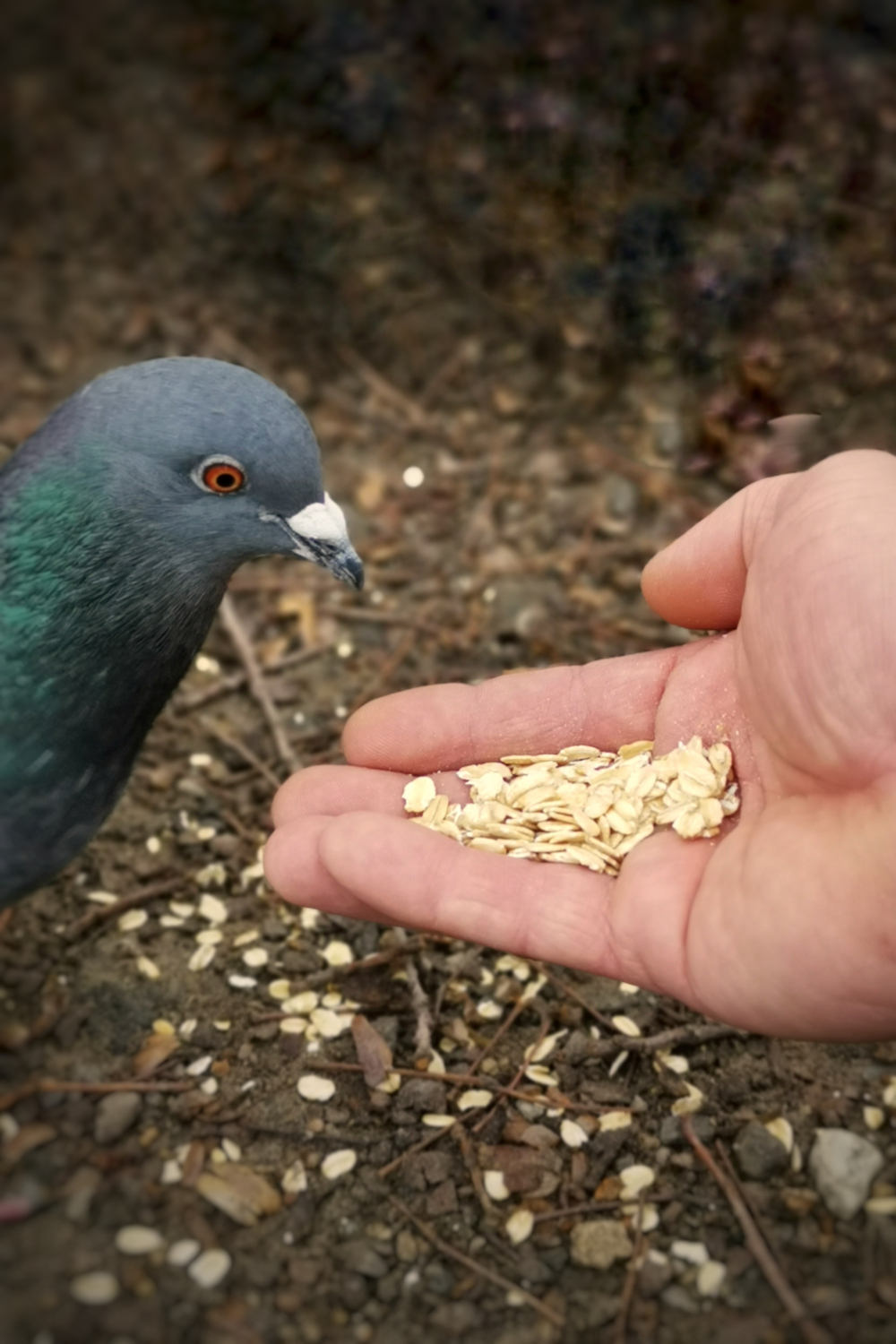What is Best to Feed Doves
Besides chocolates and flowers, doves are also symbols of love. They are among the most common birds on earth. You can find them in parks, alleyways, and even hanging around on electrical wires.
Aside from the bread, they are commonly fed in the parks by people; what do doves eat? Read on to find out.
Doves Habits And Biology

The terms dove and pigeon refer to the same bird. The smaller species of the birds are typically known as doves, whereas the larger species are pigeons.
Doves are thick-bodied birds with small heads, short necks, and short and narrow bills. There are about 344 species worldwide. Thirteen of their species are extinct.
Doves vary in size depending on their species. They may be 15-75 centimeters (5.9-29.5 inches) in length and 30-2000 grams in weight.
Did you know that the largest dove species is the Crowned pigeon of New Guinea? Yes. The bird is almost equal to the size of a turkey, and its weight ranges from 2-4 kilograms (4.4-8.8 pounds).
In contrast, the smallest dove is the New World ground dove. It can weigh as little as 22 grams (0.049 pounds).
Doves have strong wing muscles that make up about 30-44% of their body weight. They also have relatively large feathers that aid in flight. They are among the most powerful fliers in comparison to other birds.
The dove's body feathers are loosely attached to their skin and fall off easily. This adaptation helps them escape predators such as cats.
Doves use sticks and trash to build their nests. They will build their nests anywhere from the ground to ledges, or trees depending on the species.
They lay a maximum of 2 eggs at a time that hatch in about two weeks. A young dove (hatchling) is known as a squab.
Both parents will care for their squab before it's ready to leave the safety of the nest. After 4-5 weeks, the squab is ready to leave the nest to forage for food on its own.
Doves will mate for life. Only when their partner dies will they choose another mate. In the wild, if lucky, they will live for 5 or more years. Doves kept as pets can live up to 20 years.
What Do Doves Eat In The Wild?

Doves can be described as granivorous birds as they mainly feed on seeds and grain. Unlike other wild birds searching for insects and using their beaks or feet to catch and kill prey, the dove's routine is simple.
Over the years, doves have adapted to foraging on the ground. You'll find them walking on the ground, feeding as they go, without taking time to prepare the food like other bird species.
Doves take large quantities of whole seeds and grains as they forage. The food swallowed is stored in the crop, a storage chamber found in their throats. This behavior, in turn, helps the bird avoid predators as it's only exposed for short periods.
Doves in the wild will eat the following foods:
- Grains
- Seeds –like safflower, sunflower, and corn are a few examples doves eat.
- Berries
- Greens
- Fruits
- Earthworms, snails, and insects.
Dove species, such as the mourning doves, perch on electrical wires to better view the area they want to search for food.
Once they spot a suitable area, they'll fly to the ground, where they will feed on grains and seeds scattered there.
You can also find them in fields or bare ground where food is in plenty. Doves will eat 12-20% of their body weights daily, which sums up to about 71 calories.
What Do Doves Eat As Pets?
Diets of doves kept as pets and of those in the wild are similar. However, as pets, you should provide them with various foods such as fruits and veggies to meet their nutritional needs.
Among the essential nutrients required by doves are vitamins. Vitamins help prevent illnesses such as papillomatosis that is common in most birds. It causes birds' feathers to fall off, usually around the neck, due to a lack of Vitamin A.
Vitamin B helps support the crucial functions of doves. Some seeds and grains contain these B vitamins. But because they are soluble in water, doves can easily experience a deficiency if not provided with the vitamins from external sources. Lack of vitamin B may lead to health complications.
Doves require vitamin C to help with normal metabolic functioning. Birds with damaged livers are unable to produce their own vitamin C. In such cases, provide them with more seeds or external sources rich in vitamins.
Doves naturally get vitamin D from sunlight which aids in the absorption of calcium that helps strengthen the bird's bones. Whole grains contain vitamin E, which helps control most metabolic functions in the bird.
Doves get vitamin K from green veggies. It contributes to blood coagulation, and deficiency cases are rare, especially if you occasionally feed your bird green veggies like kales and spinach.
That said, here are some food items to feed your pet doves:
Seed mix:
You can buy seed mix in a lot of pet stores. It provides your dove with a lot of nutrients, such as the vitamins mentioned above. This mixture provides a balanced diet and can promote a long and healthy life for your dove.
Fruits and veggies:
Supplement your dove's diet with fruits and veggies. Chop them down to eatable sizes depending on the size of your dove, and add green vegetables to the mixture.
Wash the fruits thoroughly to eliminate any traces of fungicides or pesticides. Alternatively, you can peel off the skin of the fruit.
Pellets:
You can consult your vet on the appropriate type of pellet to feed your dove. You can feed it to both adult and baby doves.
Other foods items that make up the diets of pet doves include seeds and grains that wild doves also eat. Lastly, water is also essential in a doves diet and should be available at all times.
Tips To Feeding Doves

Doves make fantastic pets. They are gentle, calm, and relatively easy to look after. Despite this fact, your main priority should be providing it with proper nutrition regularly.
This practice will, in turn, help your bird live a long healthy life. That said, here are steps you could take when caring for and feeding your pet doves:
Provide tour doves with seed mix.
- There are seed mixes specially made for doves. Usually, they are a mixture of different seeds like safflower seeds and millet.
- You can buy seed mixes online or at your local pet store.
Feed your doves pellets.
- Pellets provide birds with nutrients that seeds may lack, such as calcium.
- Gradually introduce them to your dove's diet by mixing them into their bird seeds.
Give your pet doves fresh fruits and veggies.
- Along with seeds and pellets, fruits and veggies add diversity to the dove's diet. Offering it items like carrots, apples, broccoli, and kales provides the bird with various nutrients.
- Don't feed your dove avocados as they contain a chemical, persin that is toxic and deadly to doves and other birds.
Feed you dove fixed meals.
These birds do well when fed specific foods, unlike other birds that forage for food all day.
Provide your dove with a set amount of food in the morning that it should finish eating by the end of the day.
Give your bird at least 30 milliliters of food a day, which is equal to two tablespoons of food.
Monitor the amount of food your bird eats. This practise will help you notice possible signs of illness.
By giving your bird fixed meals, you minimize food wastage and ensure your bird has a balanced diet.
Replace the fruits and veggies every day.
Fresh fruits and veggies are more attractive to birds. They don't attract bugs or bacteria into the doves living space.
Ensure you clean the dishes you use to feed your dove.
Washing the dishes every day minimizes the bacteria your dove is exposed to and ensures it stays healthy.
You can buy several dishes for your dove's enclosure. Having several of them allows you to switch them out as you clean the dirty ones and allow them to dry.
You should always keep fresh water in your bird's cage.
Doves require fresh water at all times to ensure it stays hydrated. Water also aids in the digestion of food.
Provide your dove with crushed eggshells or grit.
Because they swallow seeds whole, they require grit that aids in digestion. You can sprinkle some grit on their food, so the bird ingests enough daily.
Supplement your dove's diet.
You can consult your vet on the appropriate supplements to give your dove. An example would be adding cod liver oil to your bird's seed.
Summary
If anyone asks you, "what do doves eat?" you will now be able to answer without hesitation. With the proper knowledge, doves are easy to care for and feed.
Over the years, doves have learned to live side by side with human beings from whom they benefit greatly.
Source: https://www.atshq.org/what-do-doves-eat/
0 Response to "What is Best to Feed Doves"
Post a Comment